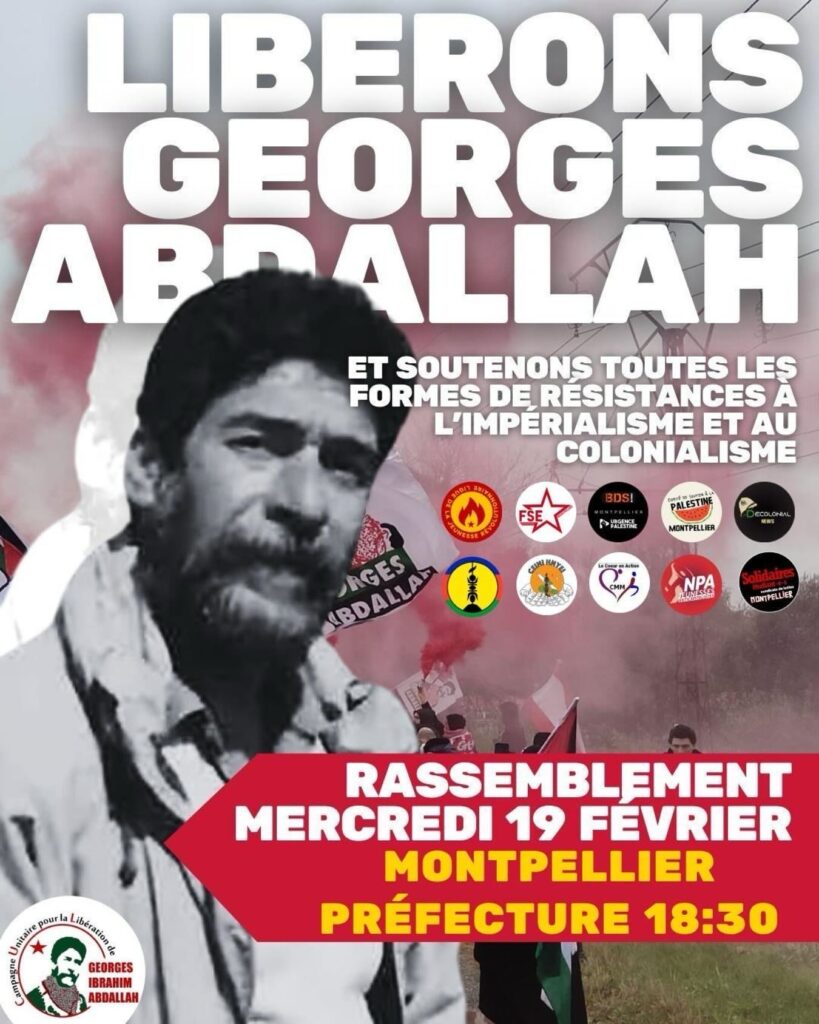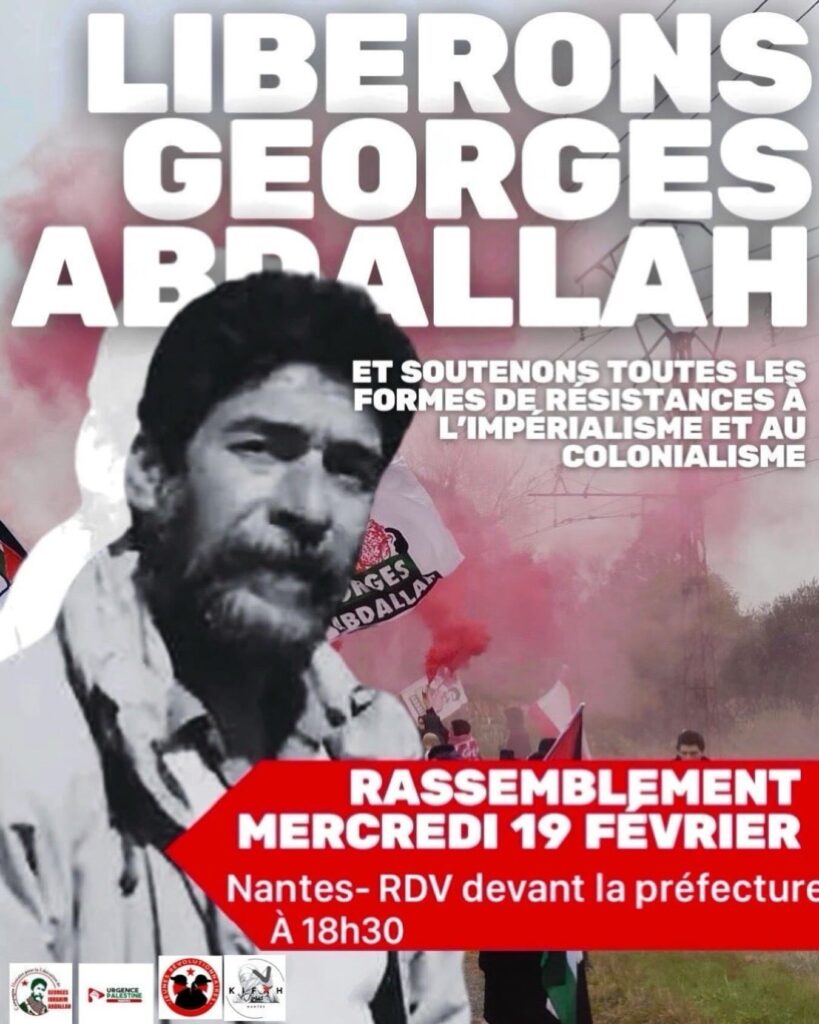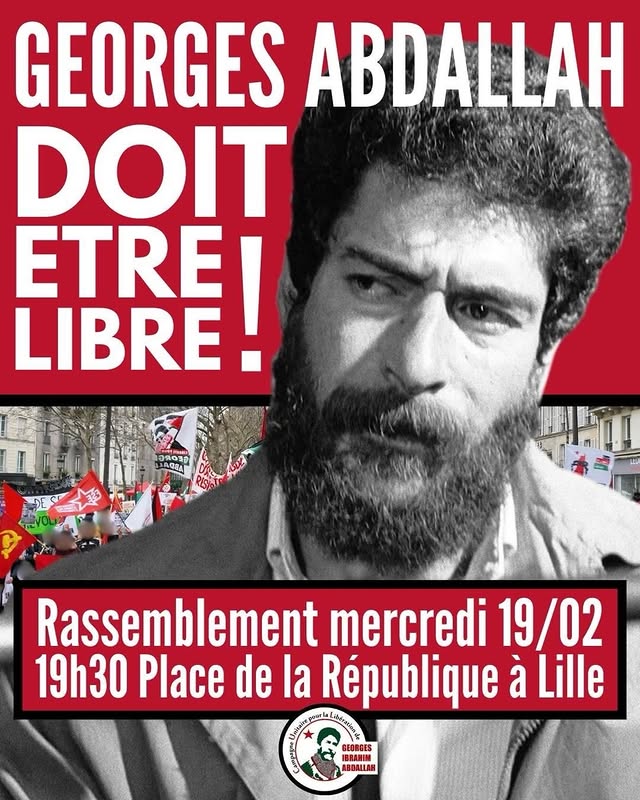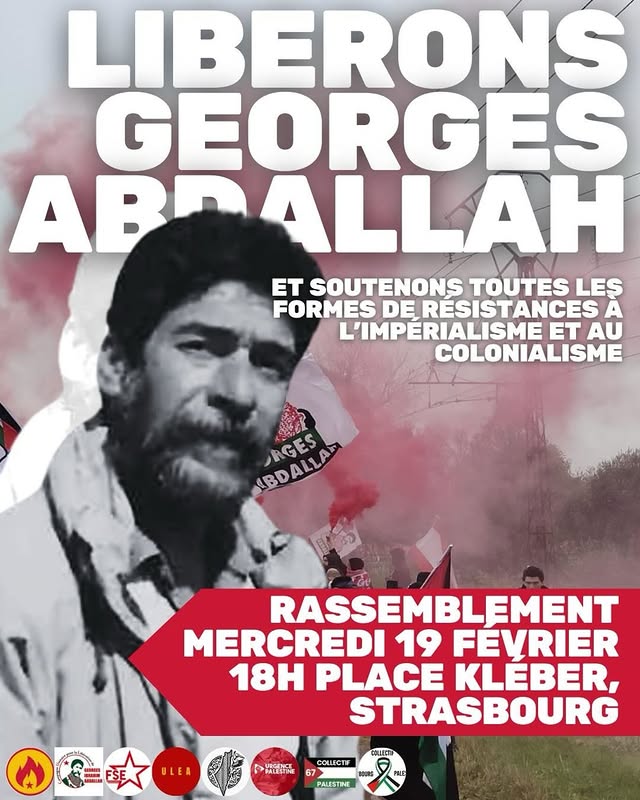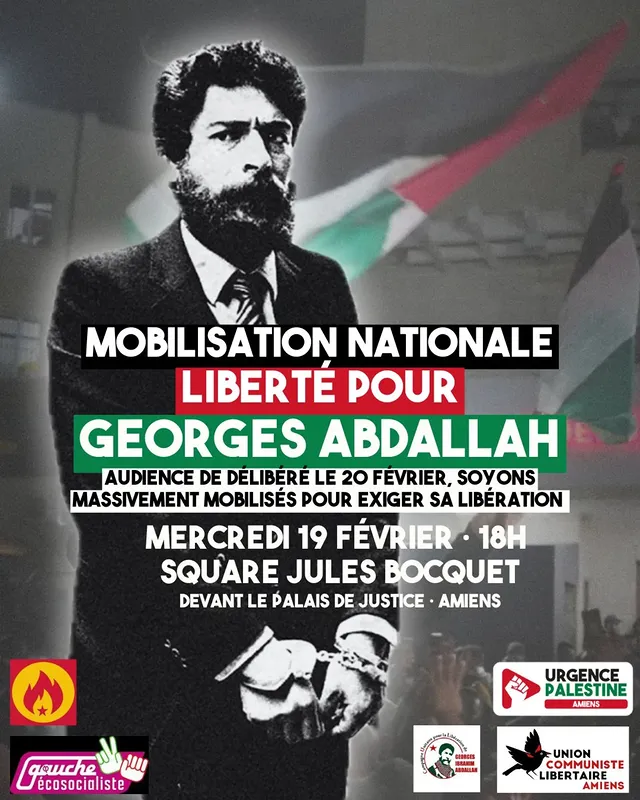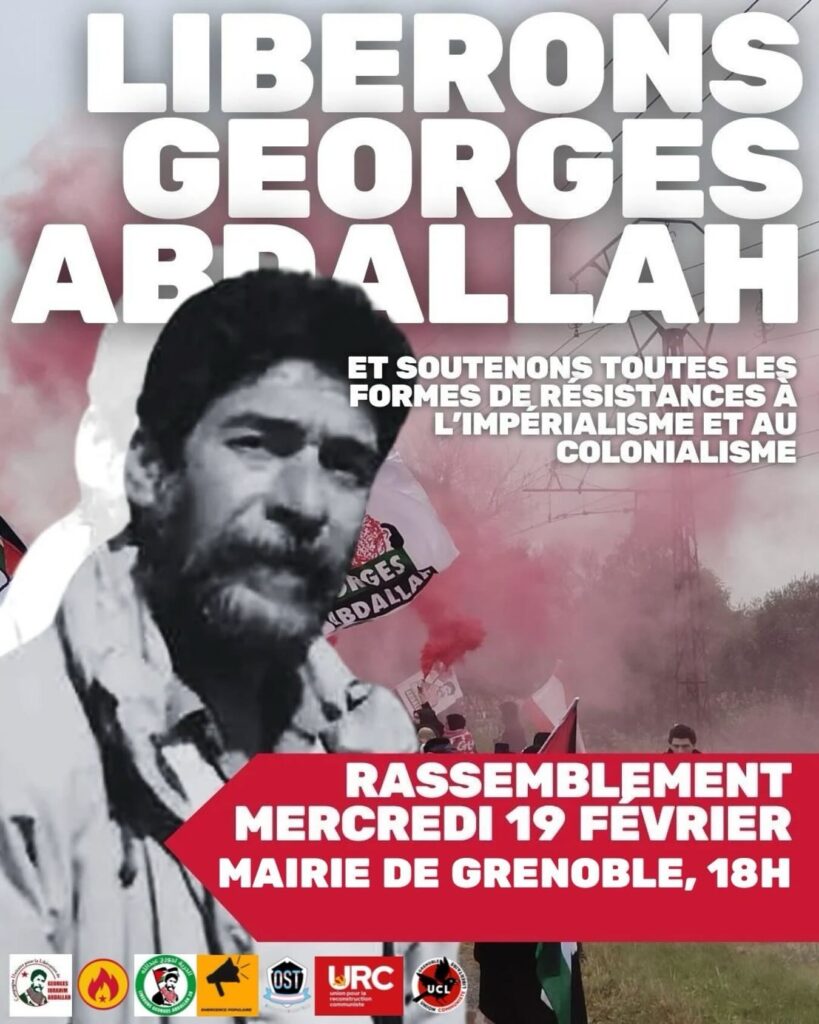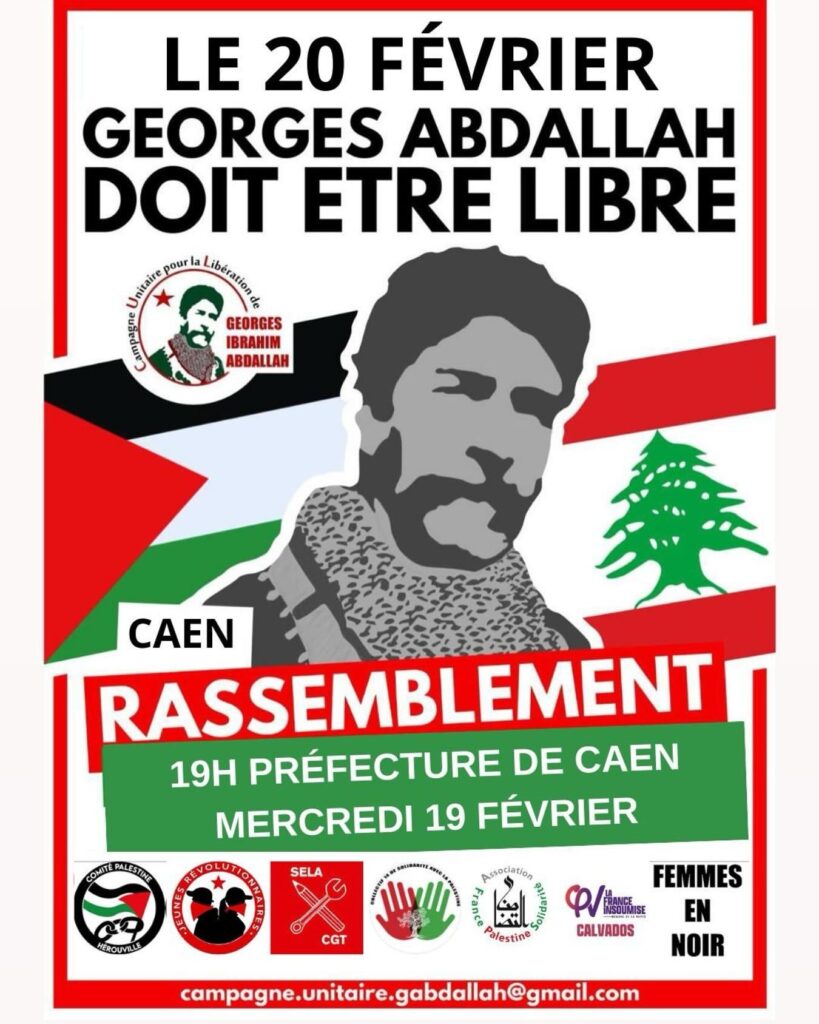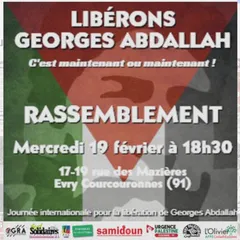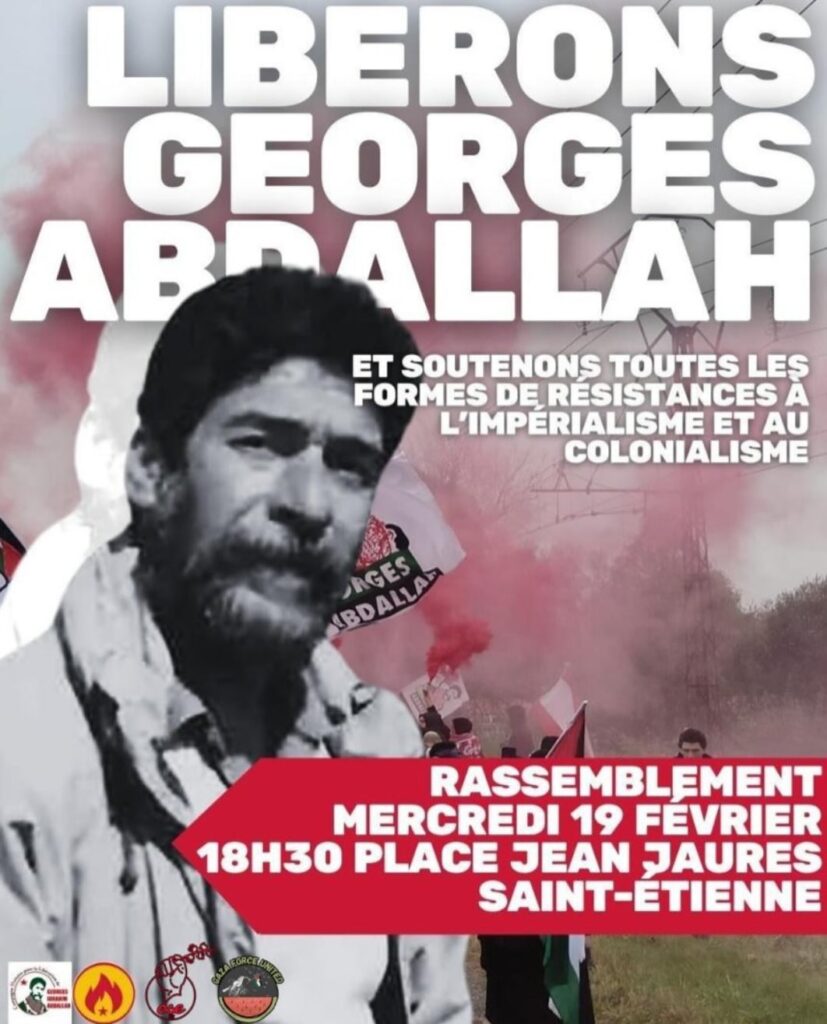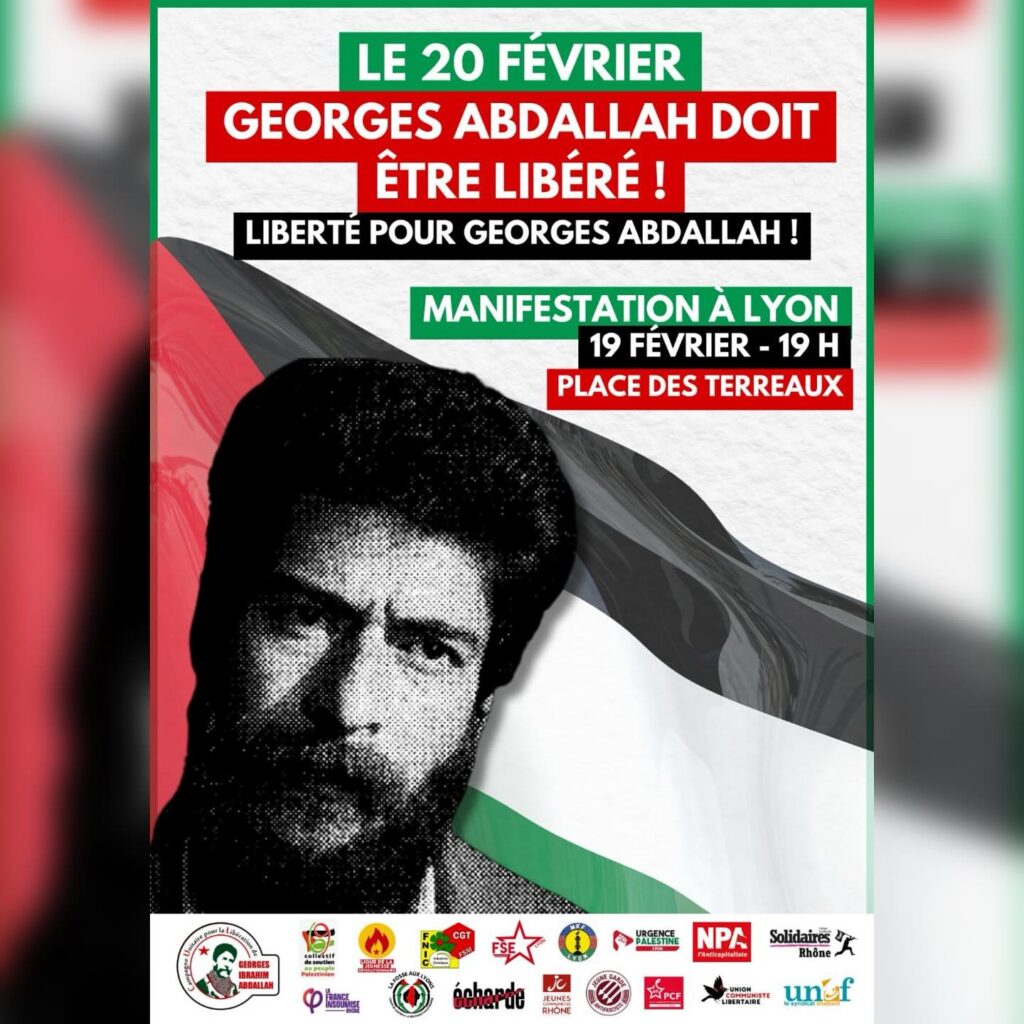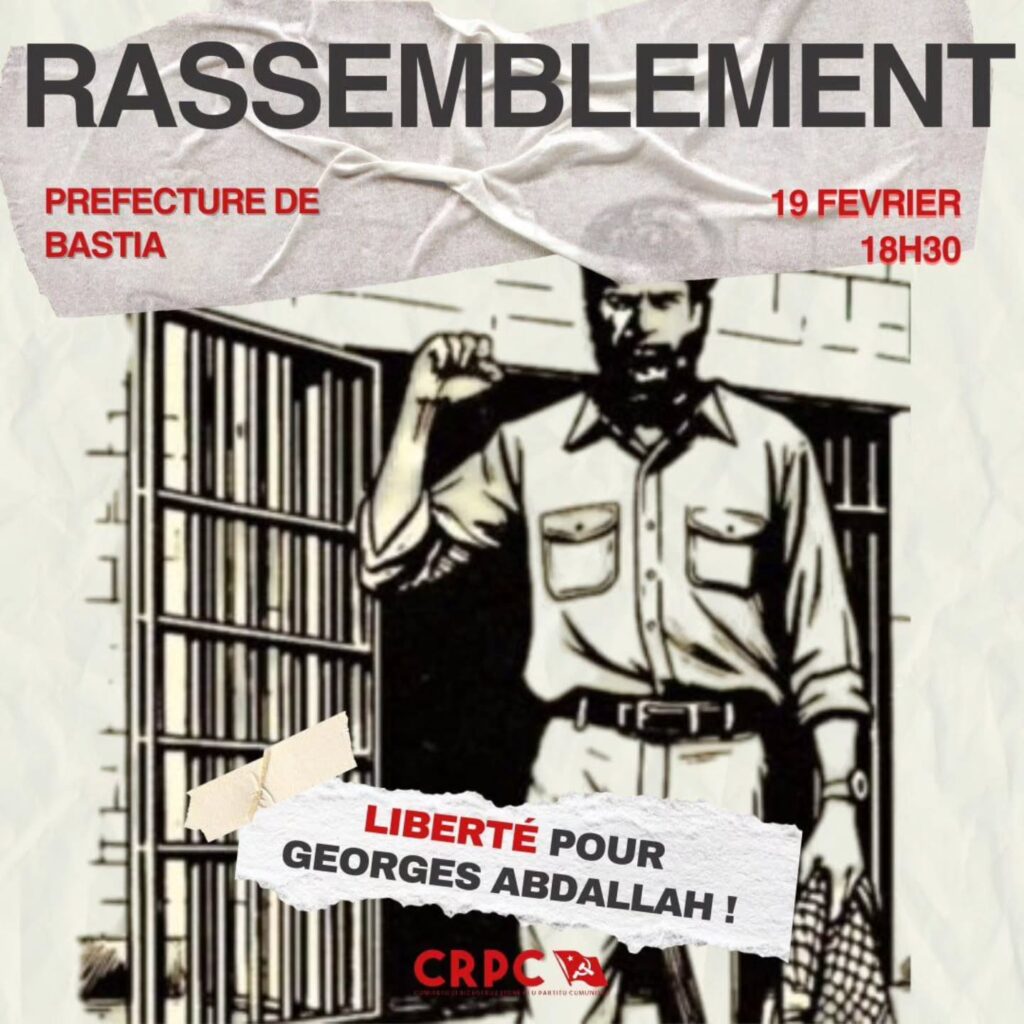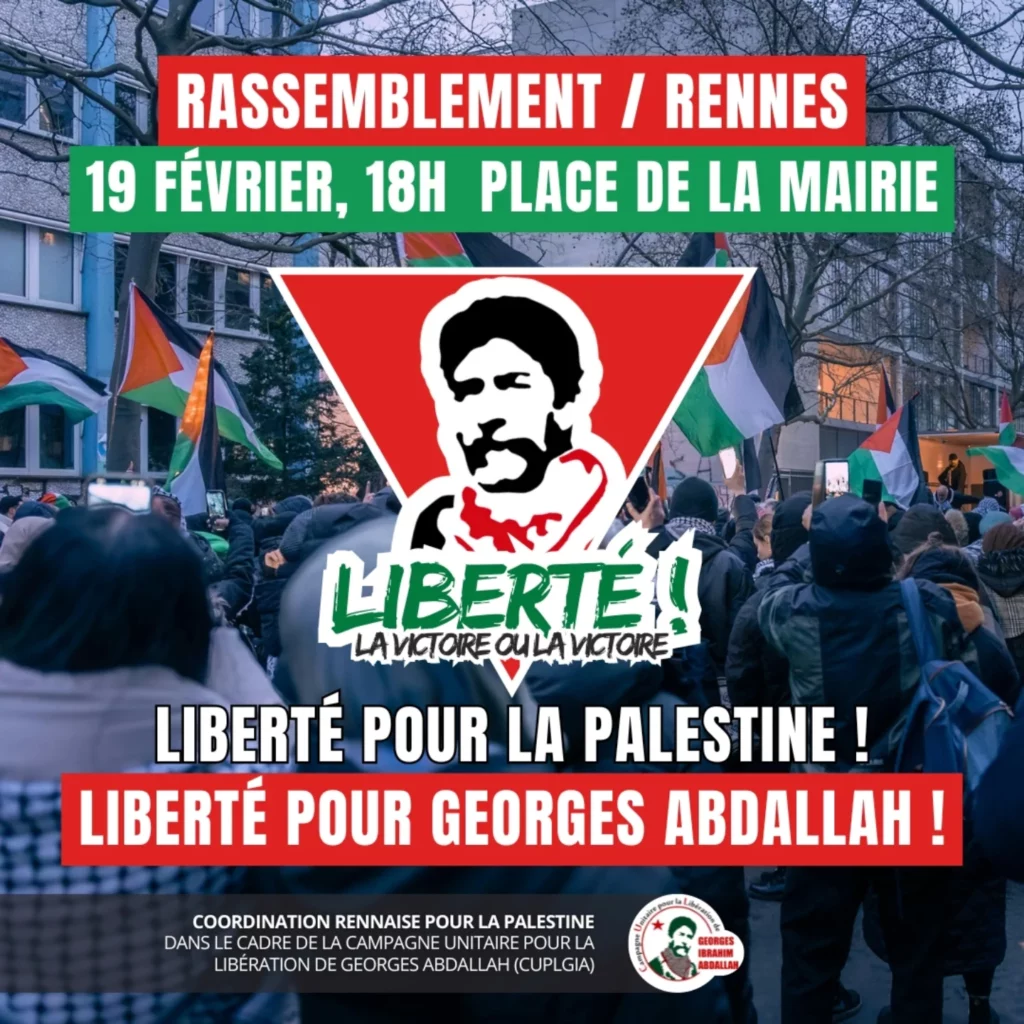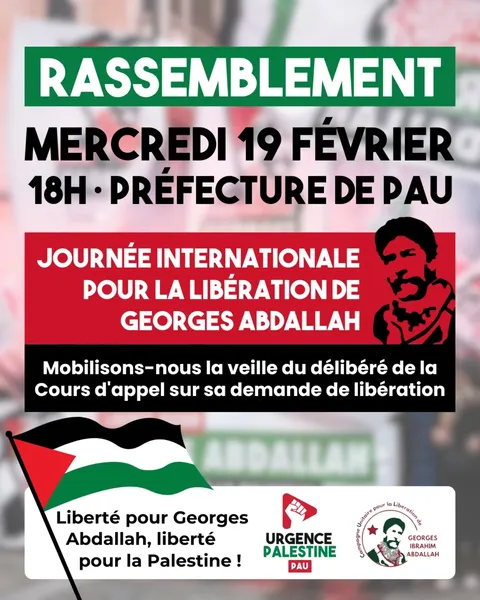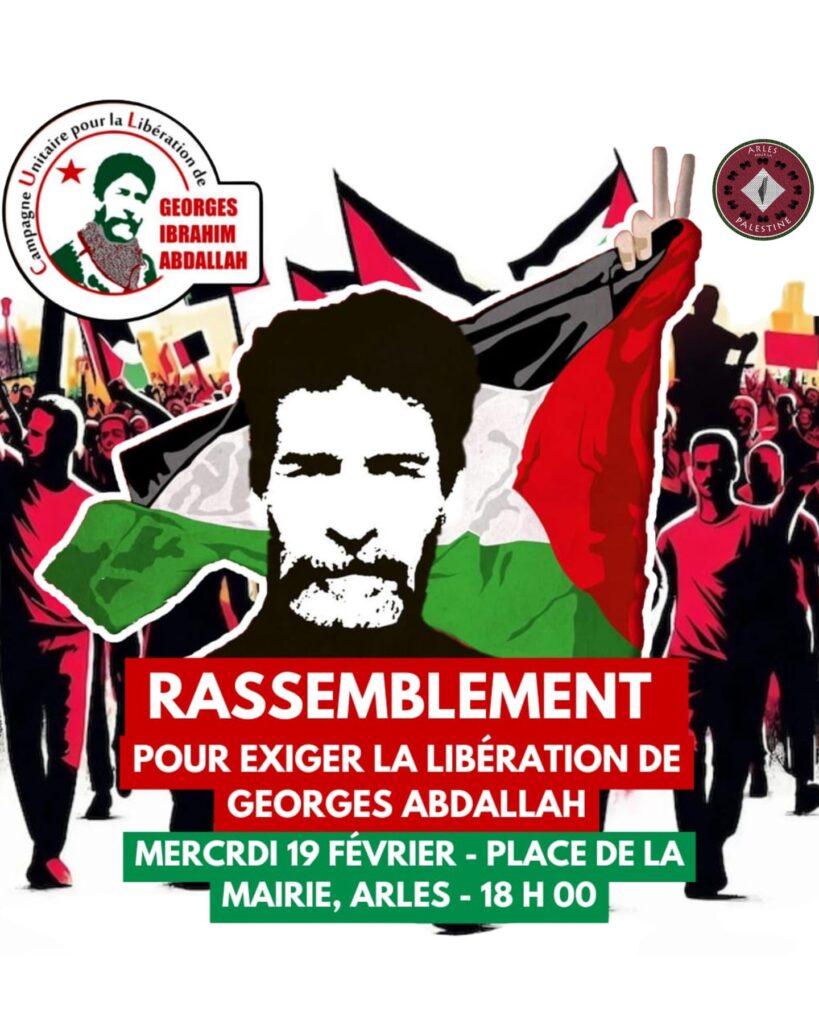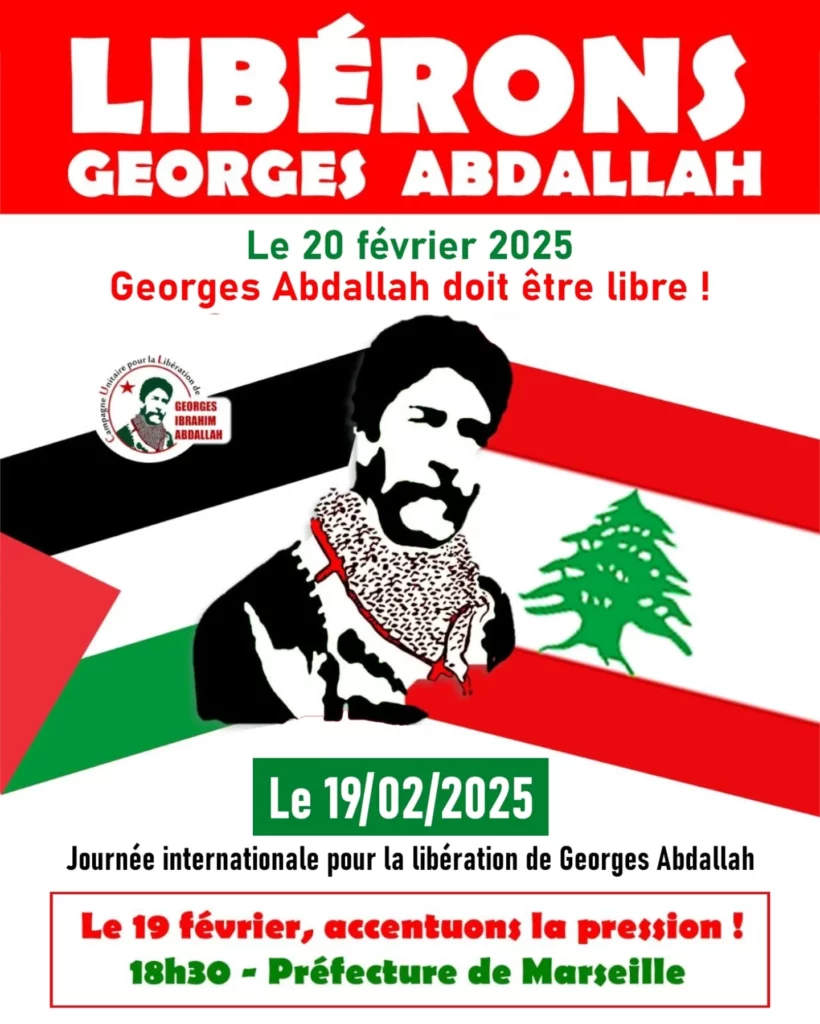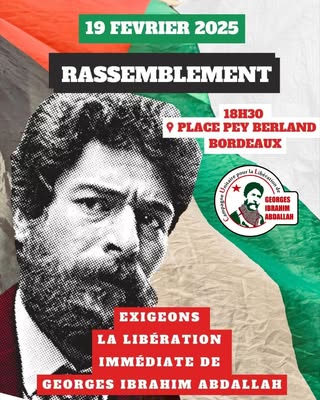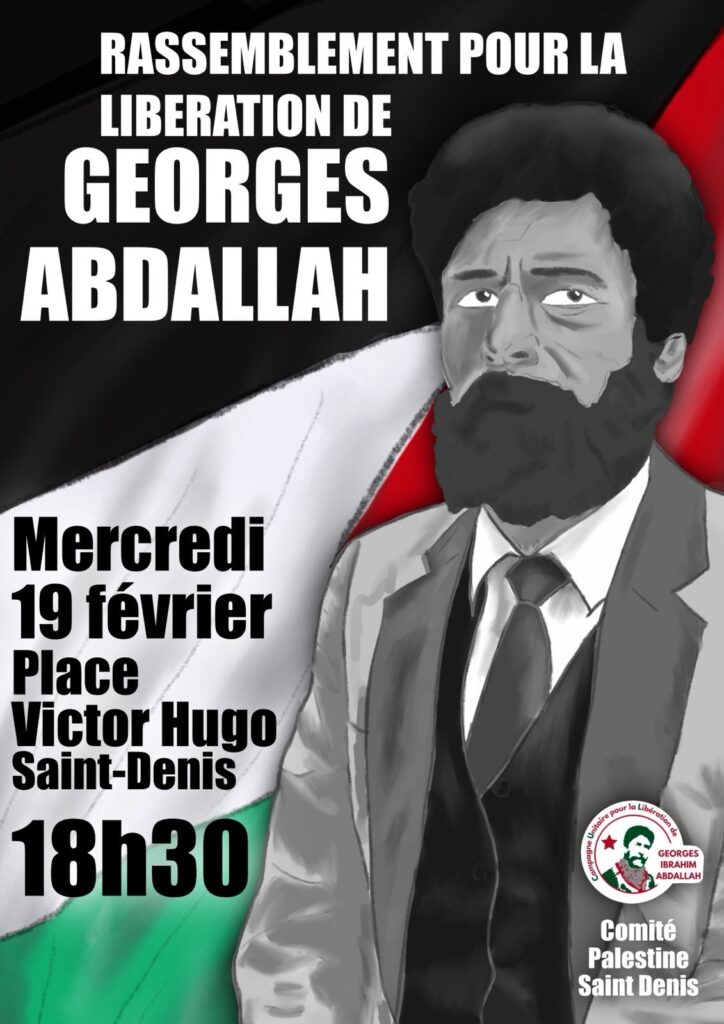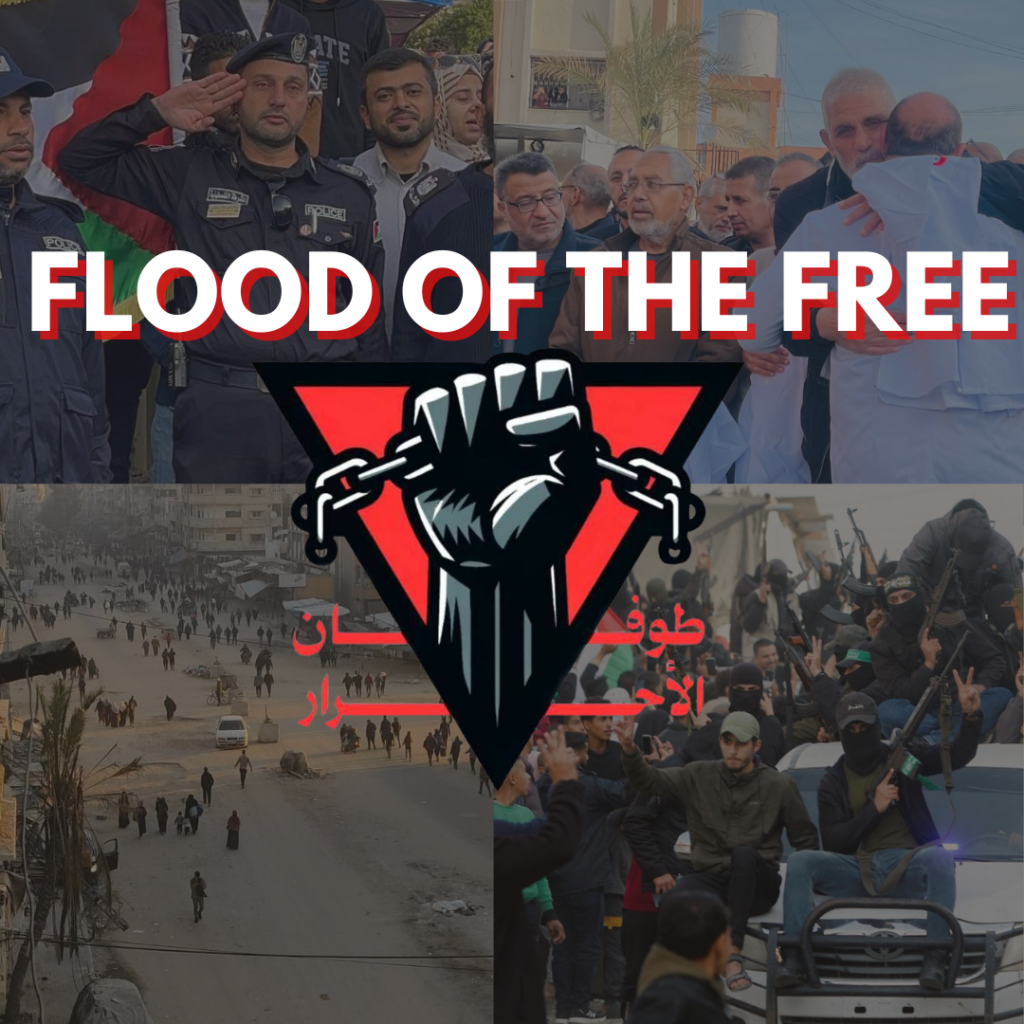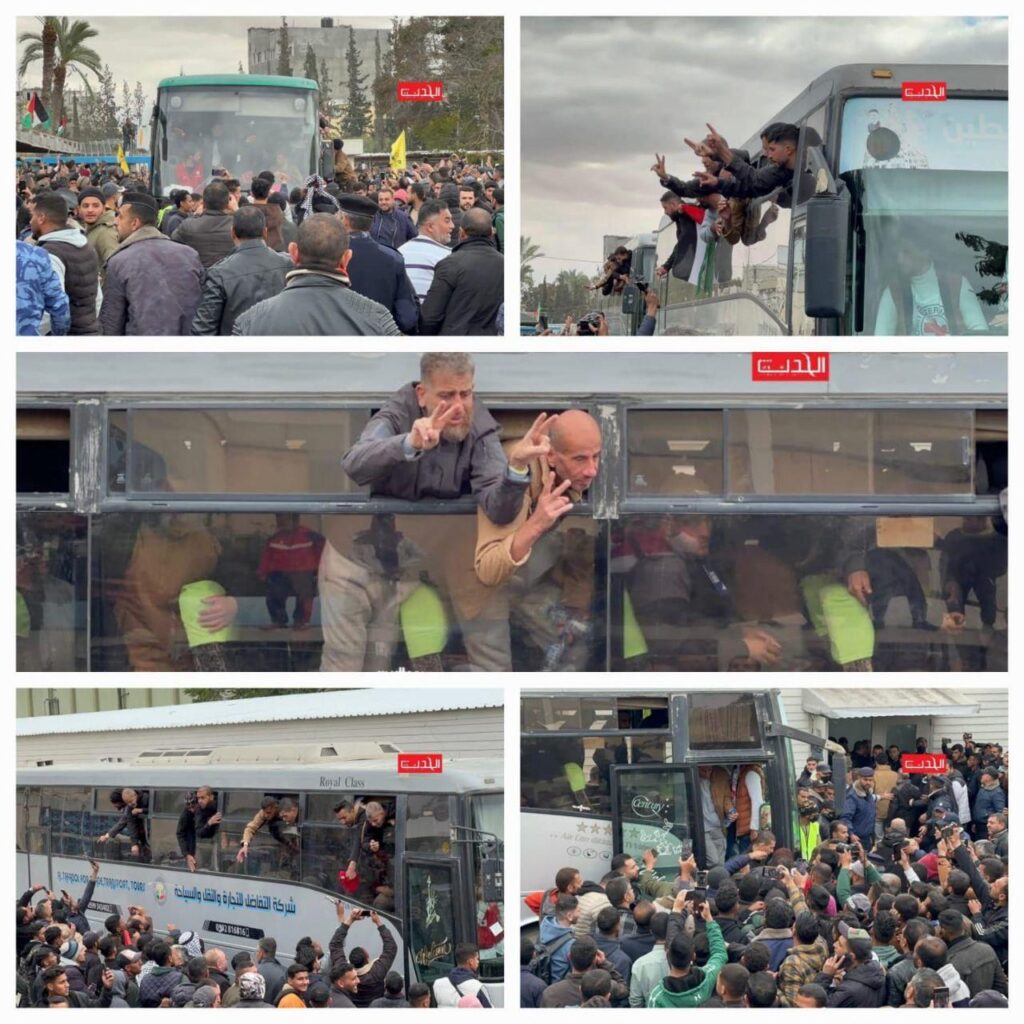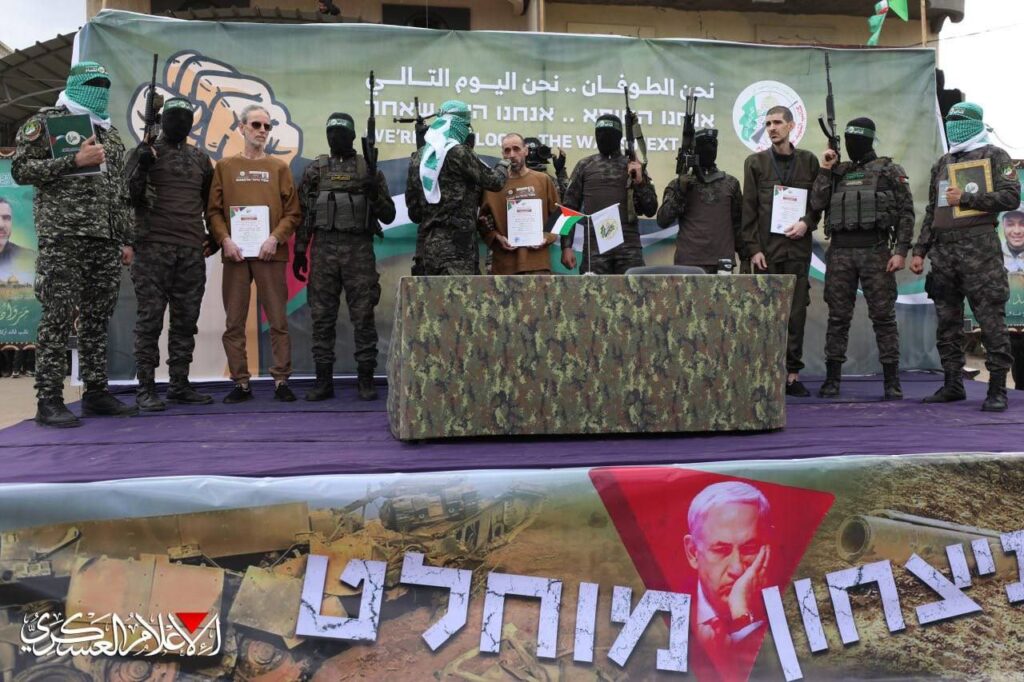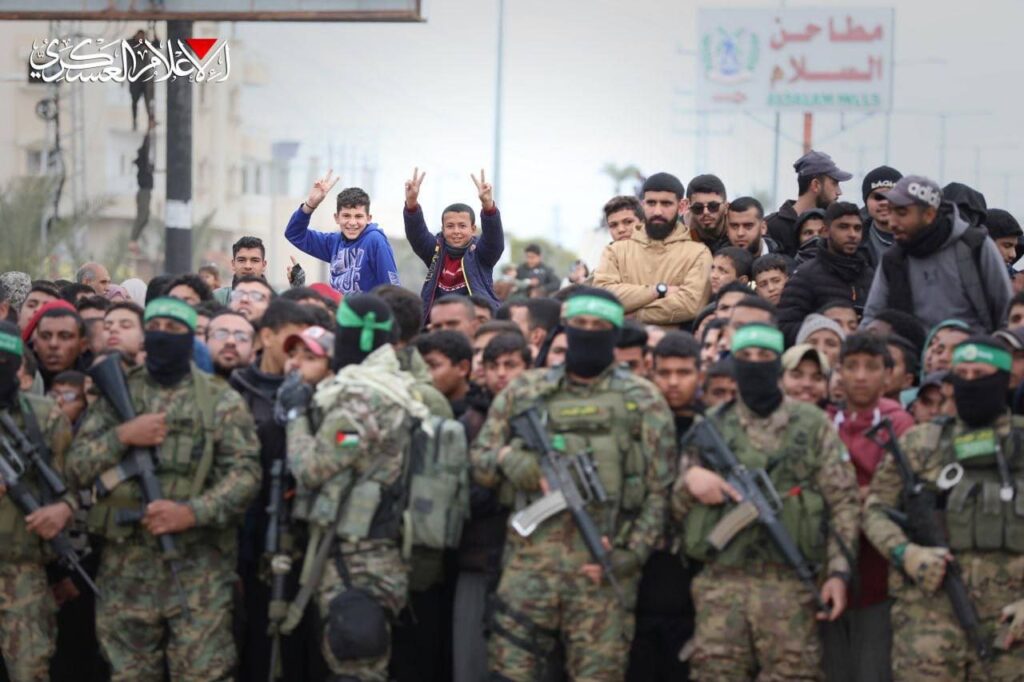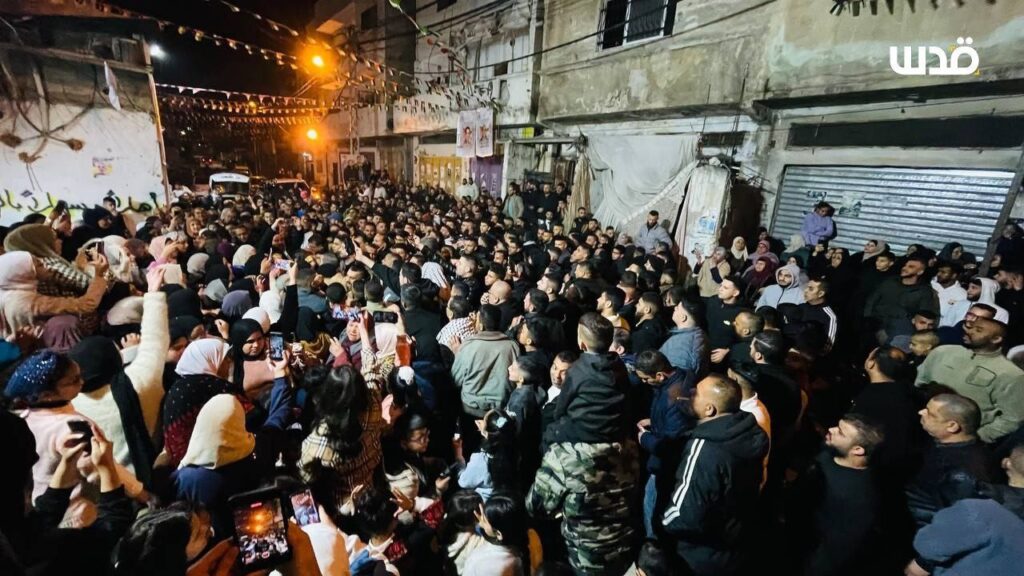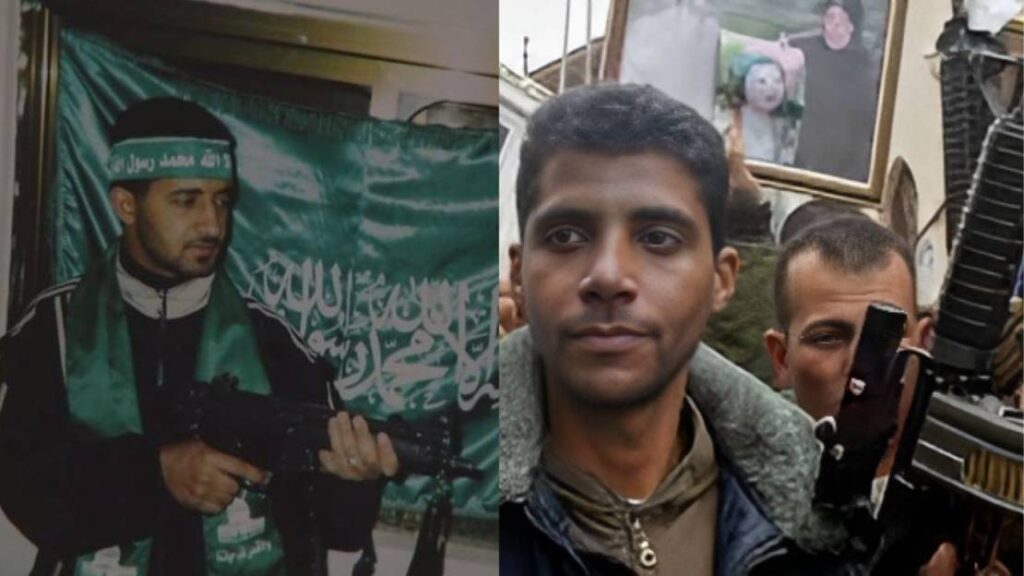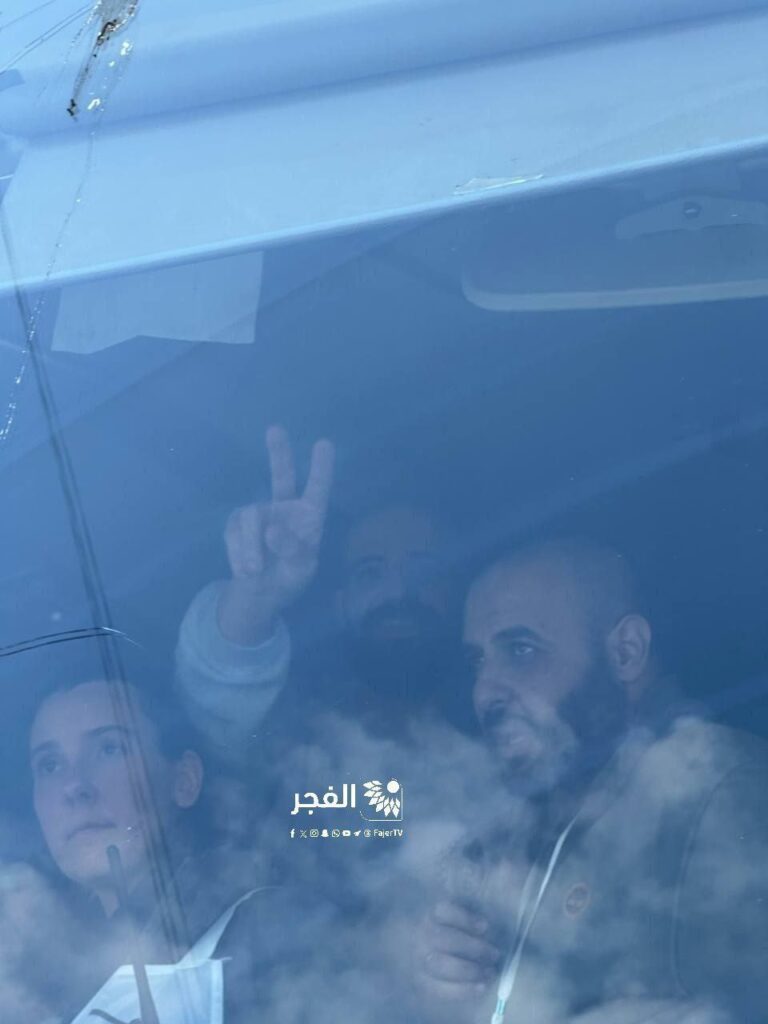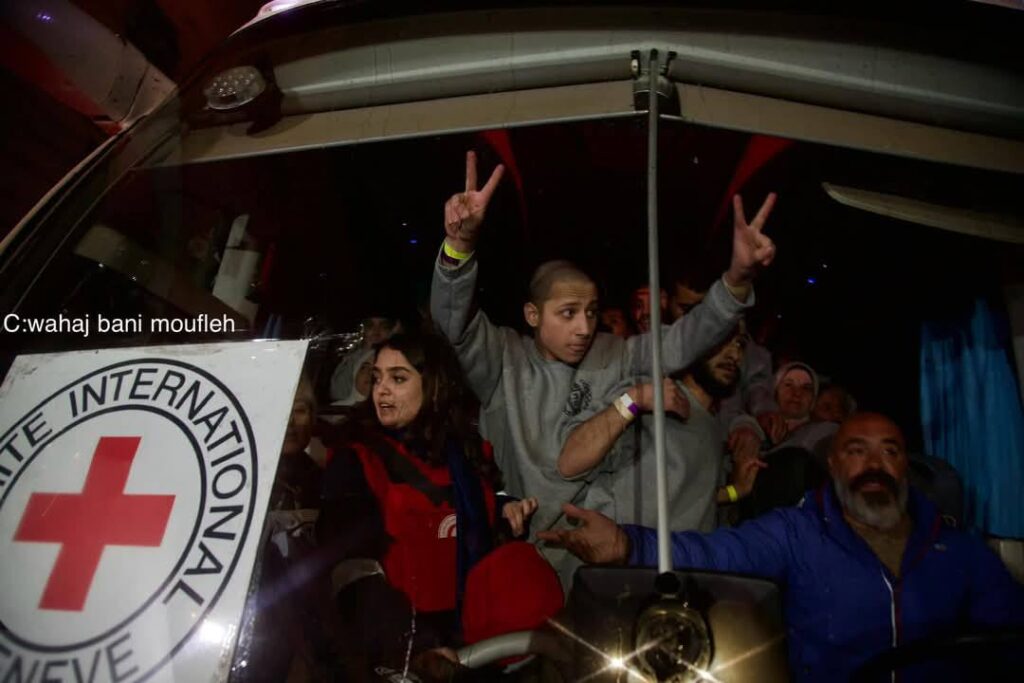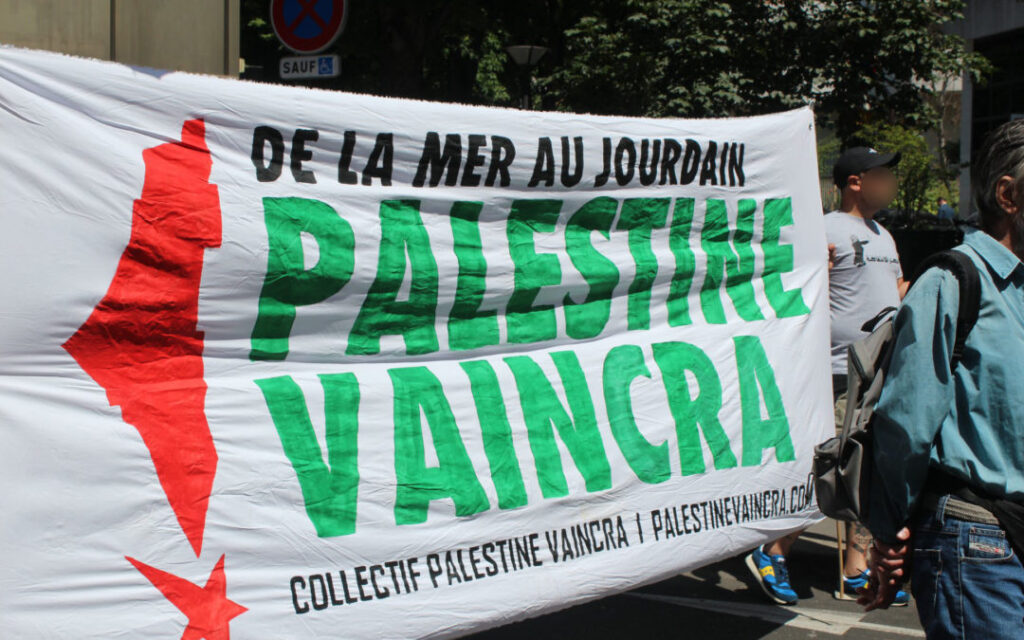
In another outrageous act by the French judiciary, only hours after postponing the decision on the release of Georges Abdallah in order to pressure him to pay tens of thousands of Euros to the United States, the Council of State upheld Interior Minister Gerald Darmanin’s 2002 dissolution order against the Collectif Palestine Vaincra, effectively banning the Palestine solidarity organization, based in Toulouse. Samidoun Palestinian Prisoner Solidarity Network stands in full solidarity with the Collectif Palestine Vaincra and calls upon organizations around the world to speak out against France’s complicity and direct participation in the US-Zionist genocide in Palestine, including its ongoing and dangerous repression against the Palestine liberation movement in France itself.
The order, issued in 2022, had been suspended by an order of the Council of State until today due to its effect on freedom of expression. In a shocking order, the Council stated that while the Collectif’s posts expressing solidarity with the Popular Front for the Liberation of Palestine and denouncing the listing of Hamas as a “terrorist” organization were insufficient reasons to ban the organization, and that the organization’s anti-Zionism and commitment to a free Palestine from the river to the sea fell within the grounds of free expression, that the Collectif can be banned because of allegedly “hateful” Facebook comments (not posts!) left by random non-members of the group that were not deleted quickly enough, despite the fact that the Collectif is a small, all-volunteer group. To be clear, the legal justification for the silencing, censorship and prohibition of the Collectif Palestine Vaincra is “insufficient moderation” of Facebook comments (even as the organization’s page has itself not been banned by the notoriously anti-Palestinian Meta!).
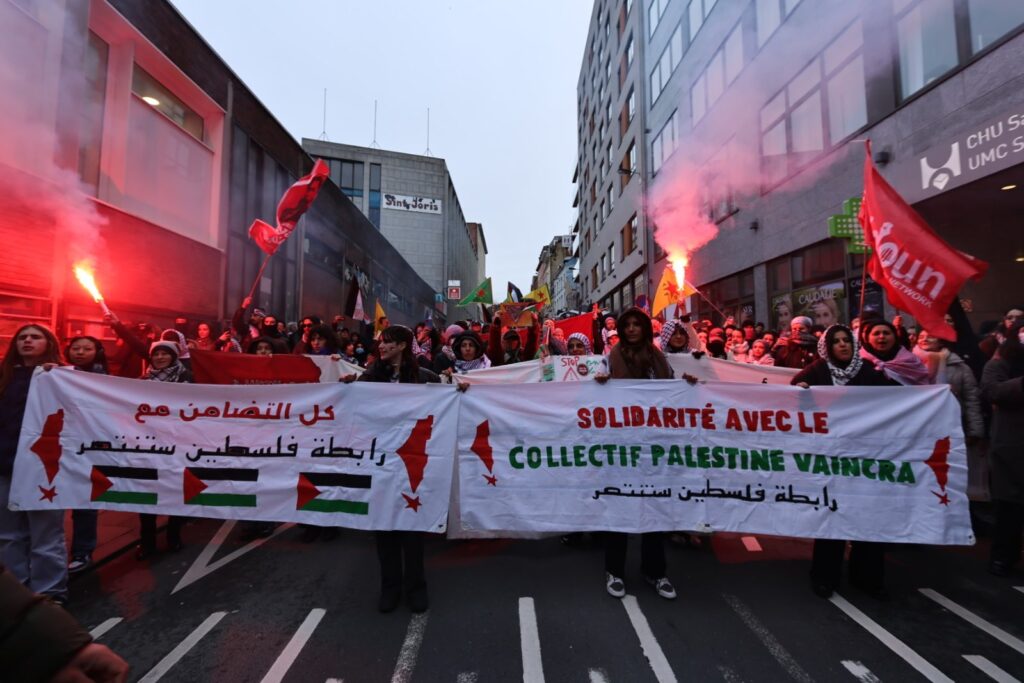
This ludicrous legal pretext was previously used to uphold the similarly political dissolution of the Collective Against Islamophobia in France (now the Collective Against Islamophobia in Europe), and is now being used to provide cover for an act that is clearly political censorship and repression of the highest order. This is taking place at the same time, of course, that hundreds of people across France are being pursued for “apology for terrorism” for speaking or posting on social media about the legitimacy of the Palestinian resistance, that Georges Abdallah remains imprisoned for over 40 years, and, of course, as France continues to ship weapons to and provide diplomatic and political cover for the US-Zionist genocide against the Palestinian people. It also comes one day after the Paris prefecture banned all demonstrations in the city for the release of Georges Abdallah, in striking reminiscence of the ban on all Palestine demonstrations across the country in Fall 2023.
The attack on the Collectif Palestine Vaincra only underlines the necessity of building the broadest, strongest alliance for Palestine, insisting on full and clear support for the Palestinian resistance to occupation by all means, led by the armed resistance forces; the liberation of Palestine from the river to the sea; and a firm commitment to anti-imperialist organizing and solidarity. It is clear that the imperialist states — from the dissolution of the CPV to the listing of Samidoun as a “terrorist entity” in Canada, its sanctioning in the US and its ban in Germany, alongside the arrest and prosecution of activists and organizers throughout the imperial core — view this mobilization in support of the resistance forces as an intolerable threat, which must encourage us to build and organize even more strongly, on a firm and principled basis, to build the international popular cradle of the Resistance.
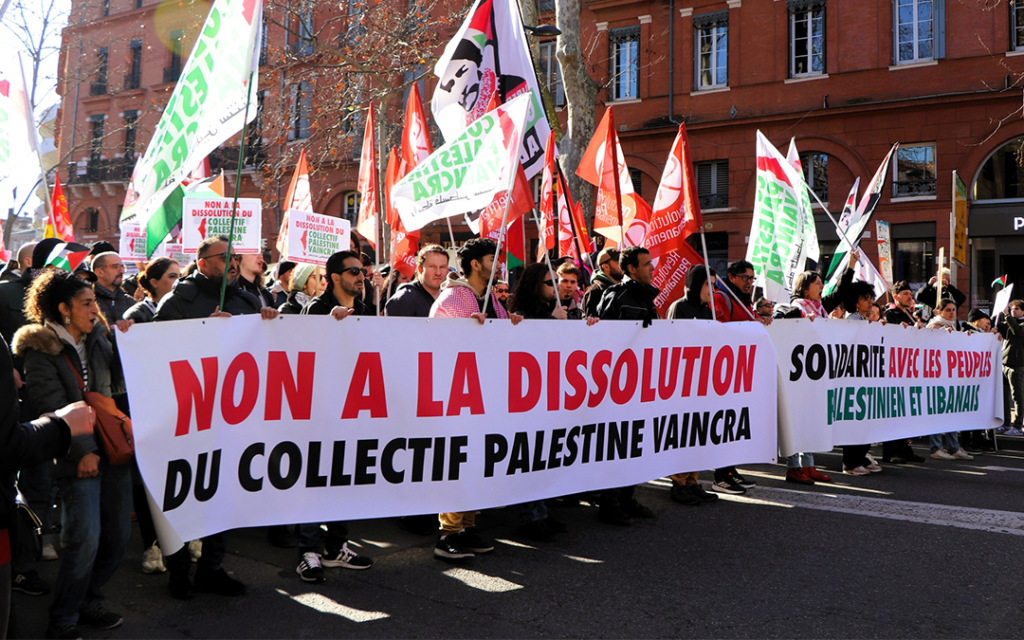
We republish the Collectif Palestine Vaincra’s statement below (in English translation):
The Palestine Vaincra Collective is dissolved: support for Palestinian resistance continues!
The Collectif Palestine Vaincra was dissolved today, 20 February 2025, following the rejection of our request to the Council of State to annul the dissolution decree. This followed a lengthy campaign of attacks and defamation led in particular by organizations close to the Israeli far right and abundantly fueled both at the local level — with Jean-Luc Mondenc, current mayor of Toulouse, at the head — and nationally by the voice of Emmanuel Macron himself. Gérald Darmanin, then Minister of the Interior, announced the dissolution of the Collectif Palestine Vaincra at the request of the President of the Republic in February 2022. Macron signed the decree in the Council of Ministers a few days later, on 9 March 2022. In response, we filed an appeal with the Council of State to request its suspension, a request for interim relief that was granted in April 2022. This was a political victory for the Collectif Palestine Vaincra since the Council of State had thus recognized the emptiness of the attacks made by the Minister of the Interior. This victory was made possible thanks to the broad support expressed by dozens of organizations and thousands of people in France and in many countries around the world. We thus resumed our mobilization in support of the resistance of the Palestinian people, stronger and more determined than ever. It was almost three years later, on 27 January, that this administrative dissolution would be assessed on the merits by the Council of State and was therefore today confirmed by the highest administrative court.
We denounce this eminently political decision, which is an unprecedented blow against the entire Palestine solidarity movement in France. In a context of the extreme intensification of state repression, it is clear that through this attack, all organizations and individuals who oppose the government and its policy are targeted. Beyond the disappearance of the Collectif Palestine Vaincra, this dissolution is therefore above all a significant collective defeat, made possible by the weaknesses of a largely insufficient mobilization in view of the blows dealt by the State against the organizations that fight its deadly policy. But it is never too late, it is more necessary than ever to build a front of resistance to confront it! Obviously, this dissolution reminds us once again that more than for more than 15 months, through its unconditional support for the Zionist State, France is complicit in the ongoing genocide in Gaza and the continuation of colonization throughout occupied Palestine.
Since these lines are also those of assessment, we recall that since its creation in 2019, the Collectif Palestine Vaincra has, with many organizations, tirelessly occupied the field in Toulouse and elsewhere to support the Palestinian resistance in its legitimate fight against imperialism and Zionism and to defend the only just and sustainable perspective in the region: a free Palestine from the river to the sea. These are indeed the political positions defended by the collective that the French authorities have tried to silence by all means at their disposal. We nevertheless affirm that we proudly and fully support the results of these years which have allowed the Collectif Palestine Vaincra to lead numerous campaigns to boycott the Zionist state, particularly in Toulouse against the twinning of the city with Tel Aviv, in support of Palestinian prisoners, and a remarkable mobilization to demand the release of Georges Abdallah who, as you know, saw his 10th request for release adjourned until 19 June by the Paris Court of Appeal which made his release conditional on compensation for the civil parties, namely the United States. Their relentlessness continues; our mobilization must continue!
But despite this dissolution, one thing is certain: the imperialists and their allies will not stop the growing mobilization of support for the Palestinian people and their resistance. We can only rejoice to see how this mobilization is growing, notably thanks to a young generation with an anti-imperialist viewpoint forged in the fight against genocide and its accomplices, and which clearly supports radically anti-Zionist and anti-colonialist positions in support of the Palestinian resistance. Likewise, despite more than 76 years of settler colonialism, the Palestinian people demonstrate every day that they are standing firm and that they are continuing their fight until the return of all refugees and until the liberation of Palestine, all of Palestine, from the river to the sea. And they will always be able to count on the millions of people across the planet who embrace the formula of the Arab intellectual and revolutionary Samah Idriss: “If we abandon Palestine, we abandon ourselves.”
Palestine will live! Palestine will win!
The Collectif Palestine Vaincra, February 20, 2025

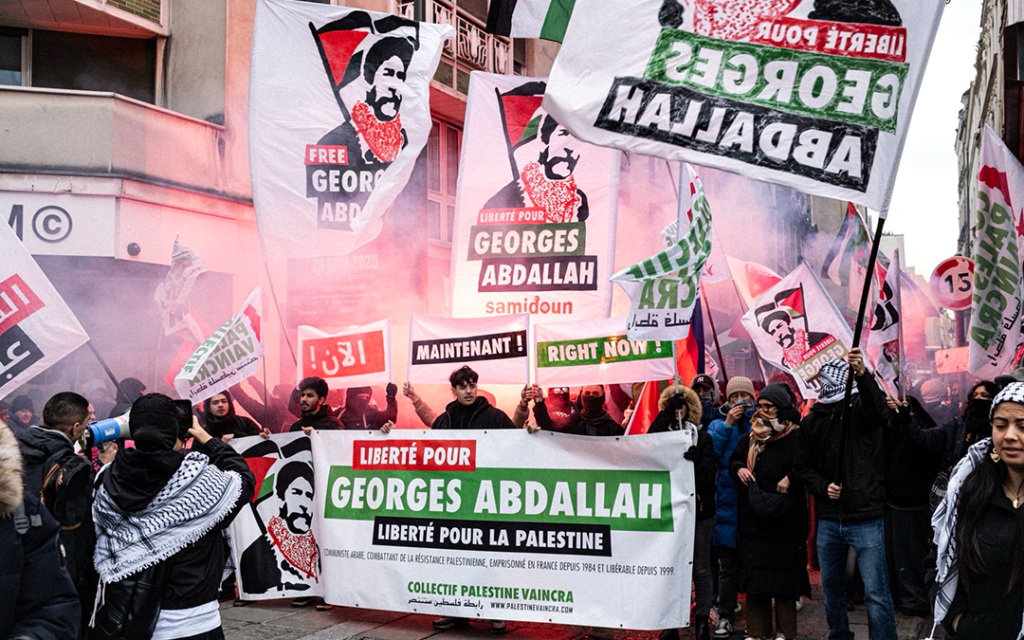
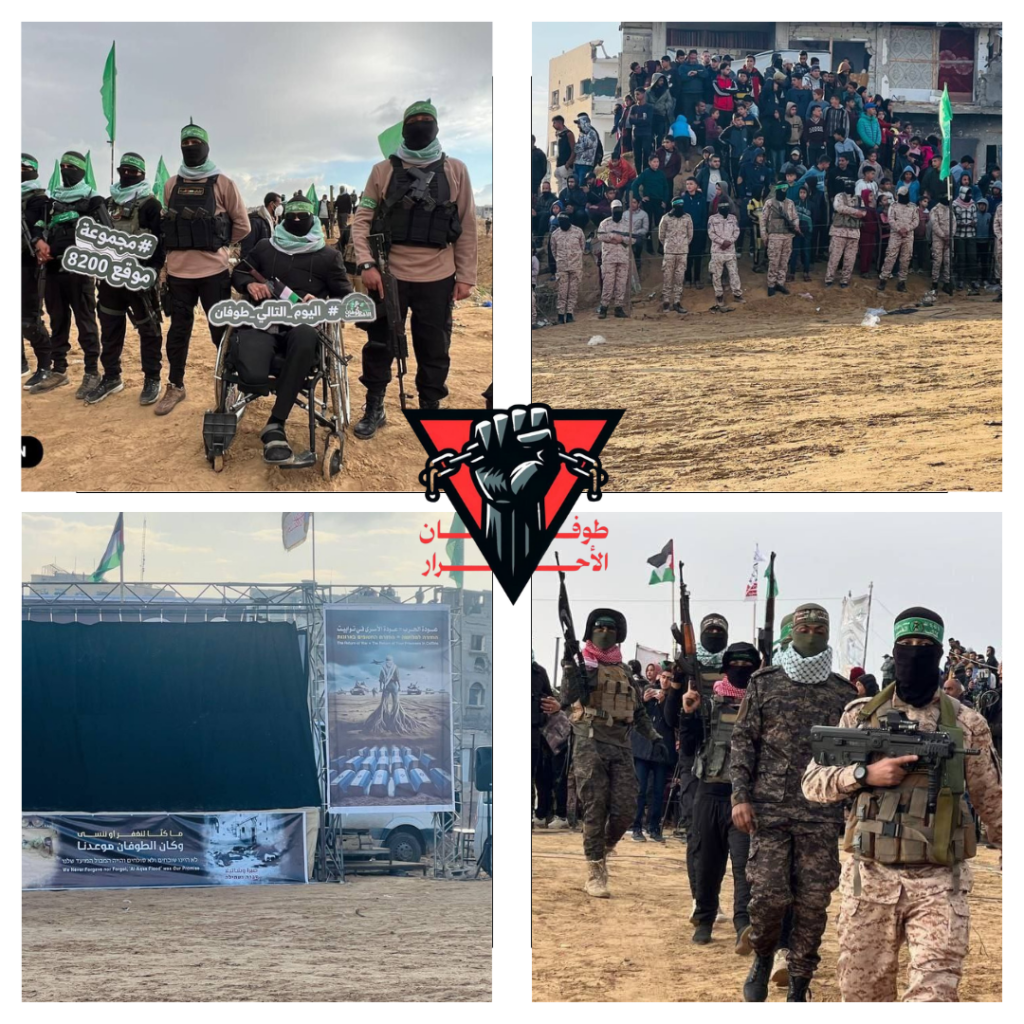 The Palestinian resistance is holding a ceremony for the handover of four bodies of Zionist prisoners of the resistance killed by occupation warplanes on the morning of 20 February, in which liberation fighters, liberated Palestinian prisoners — including
The Palestinian resistance is holding a ceremony for the handover of four bodies of Zionist prisoners of the resistance killed by occupation warplanes on the morning of 20 February, in which liberation fighters, liberated Palestinian prisoners — including 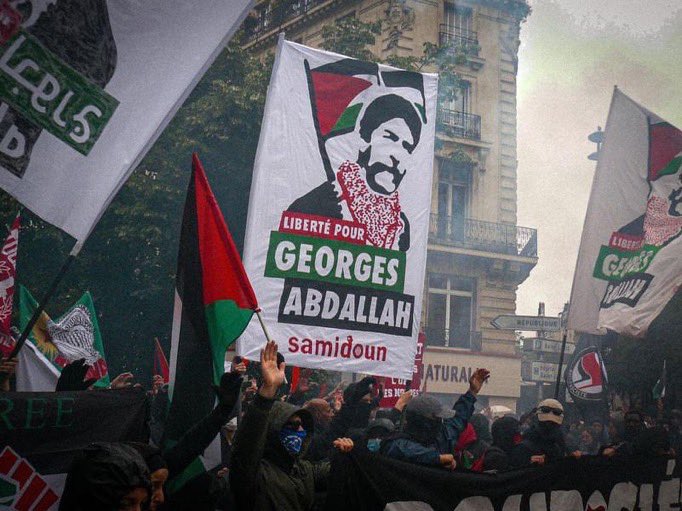
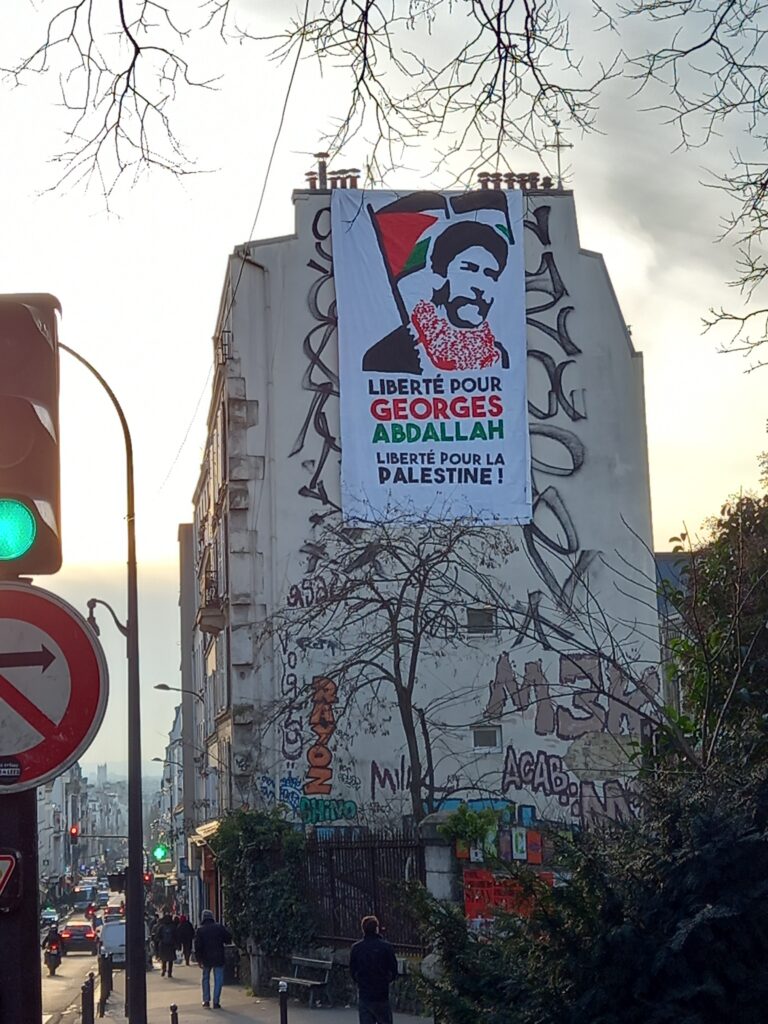
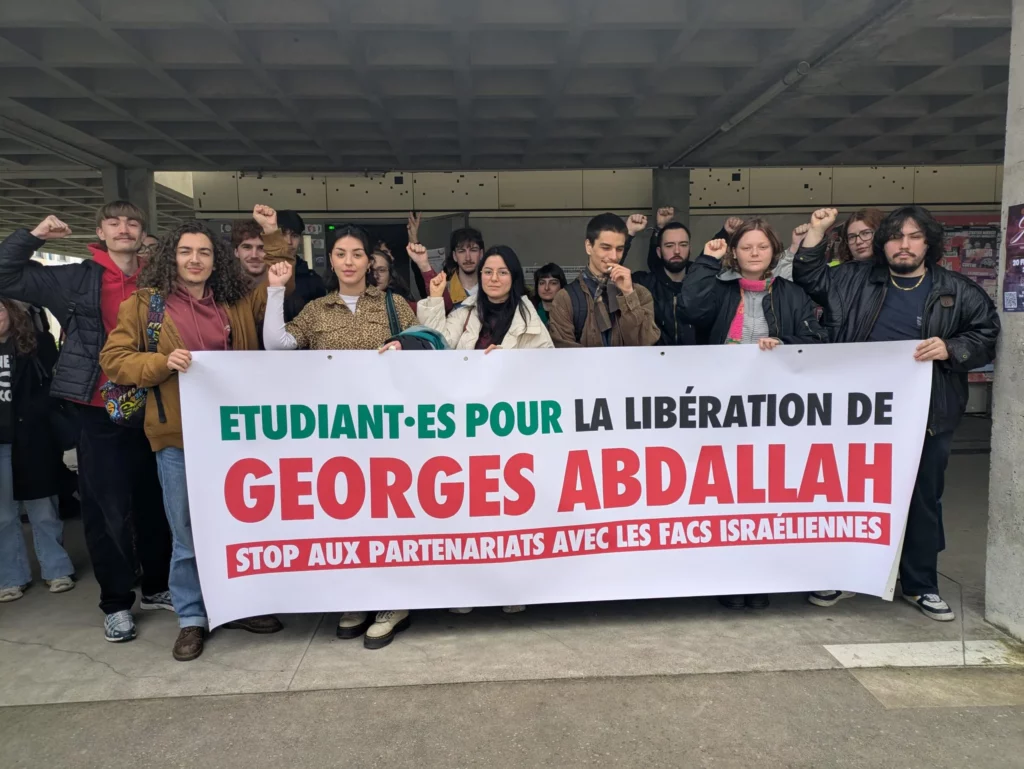
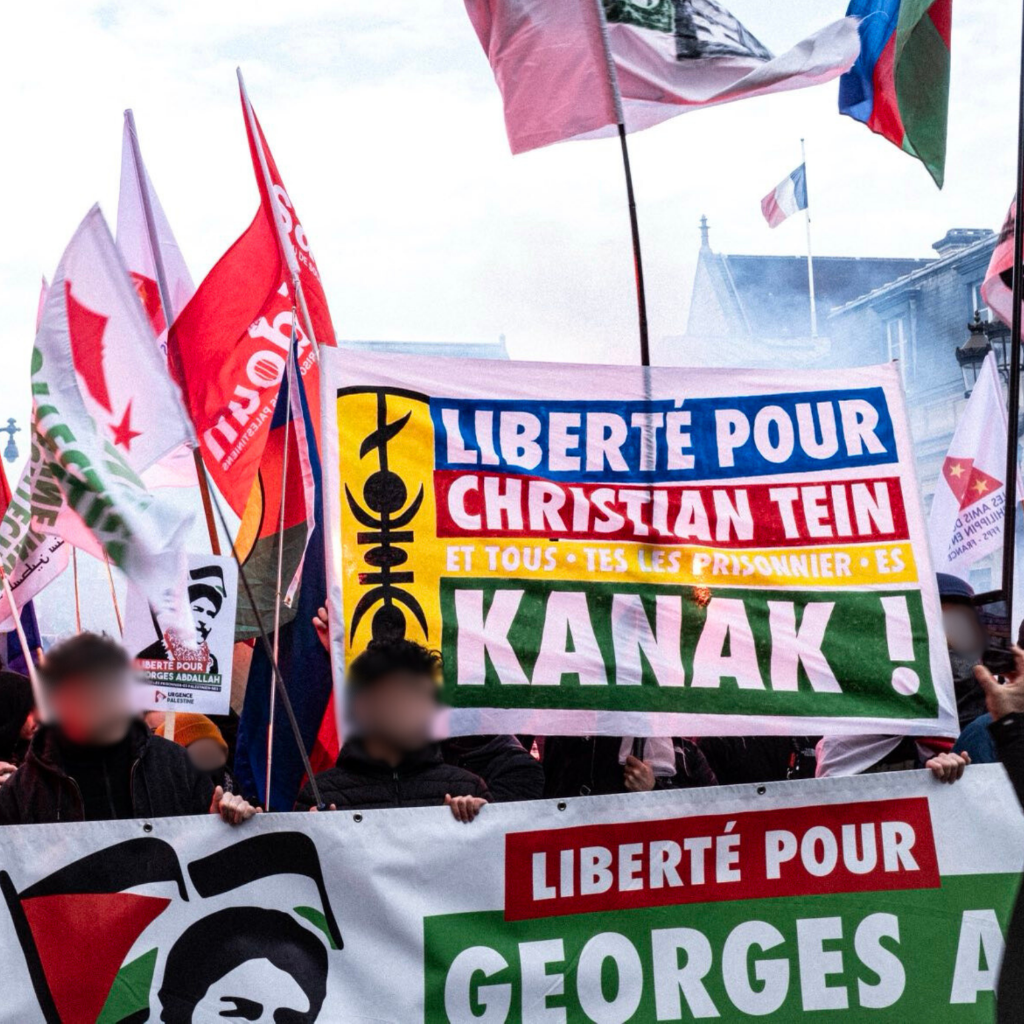
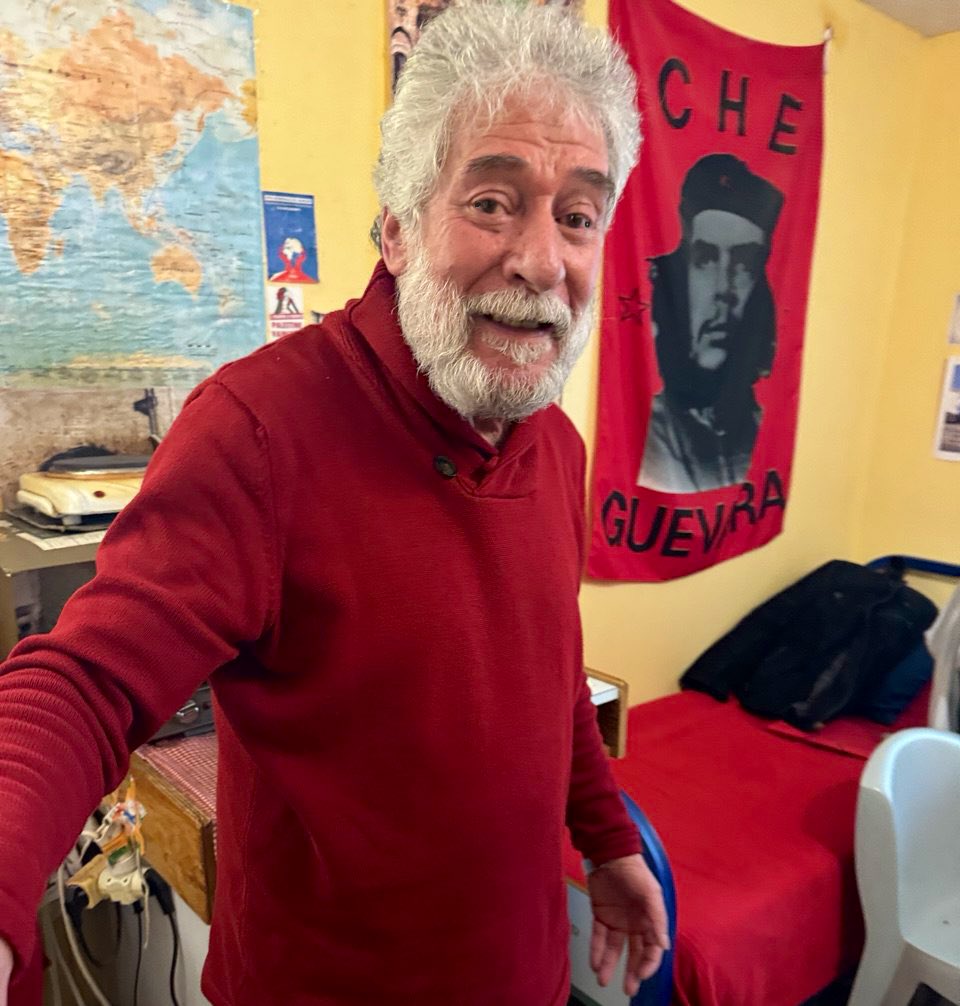
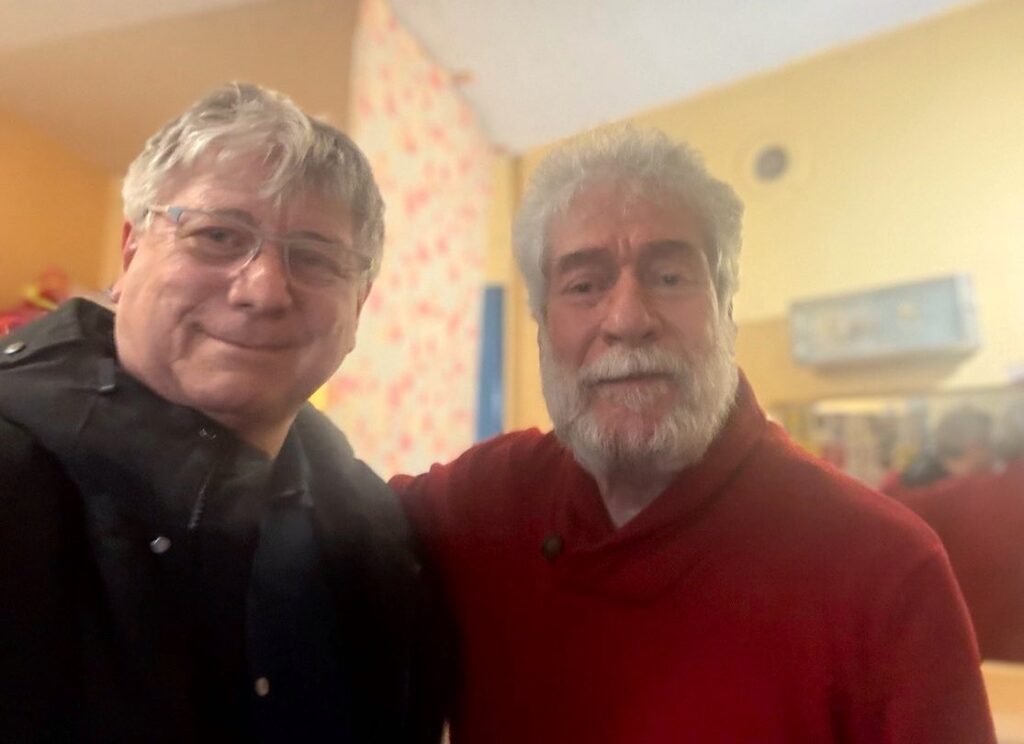
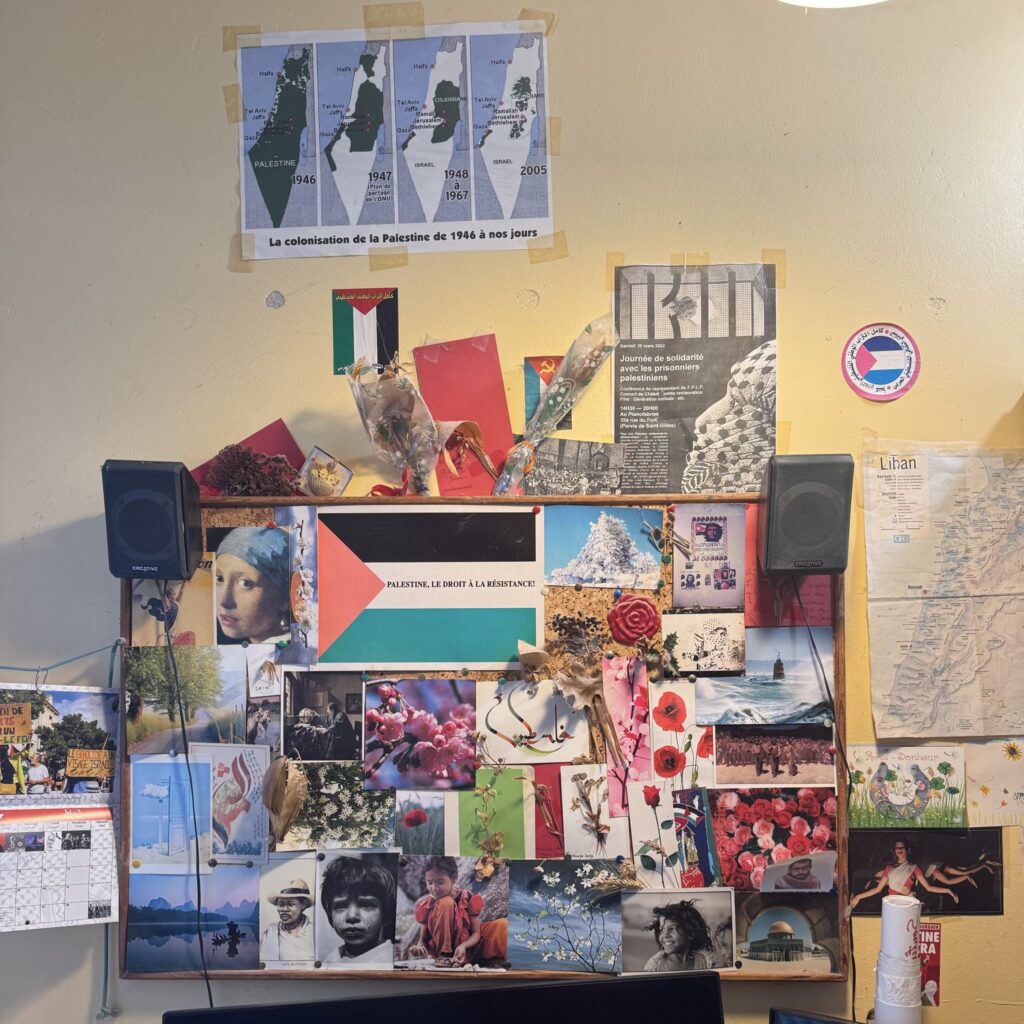
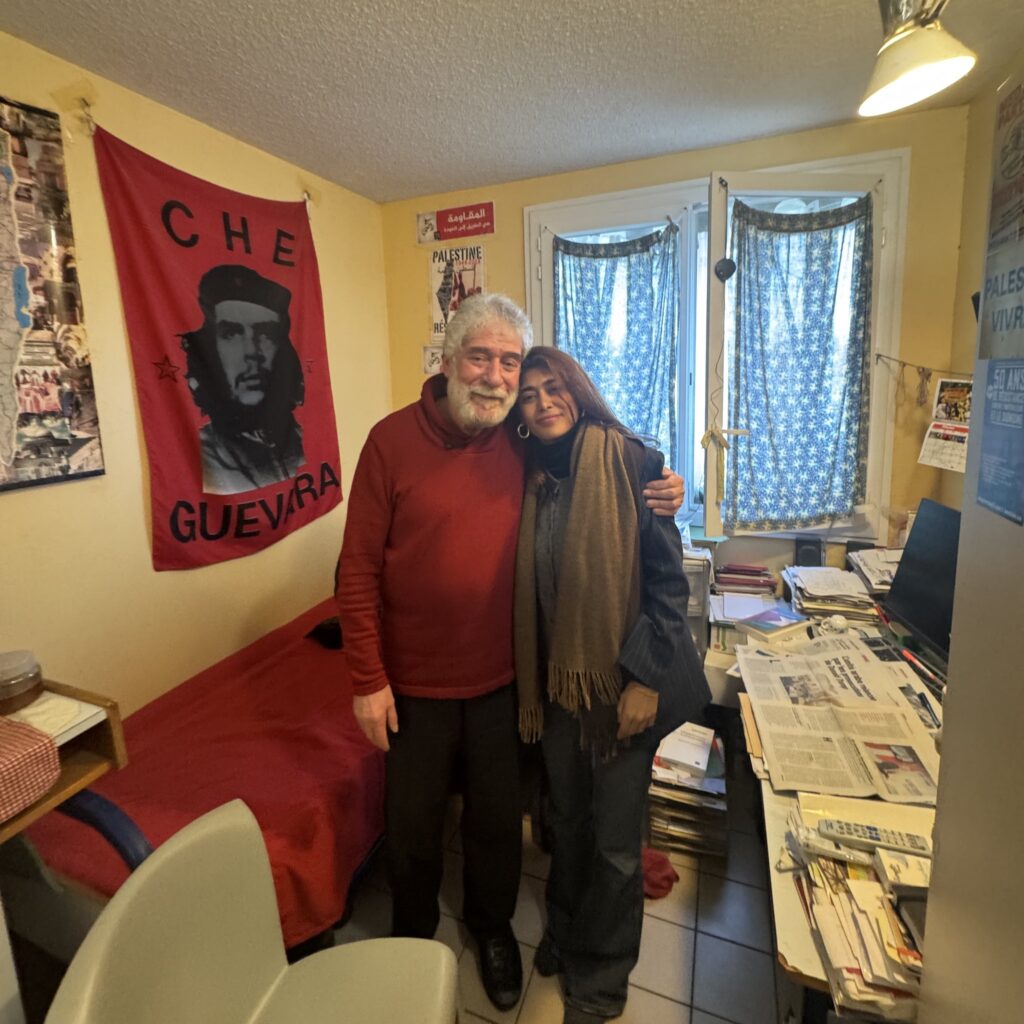
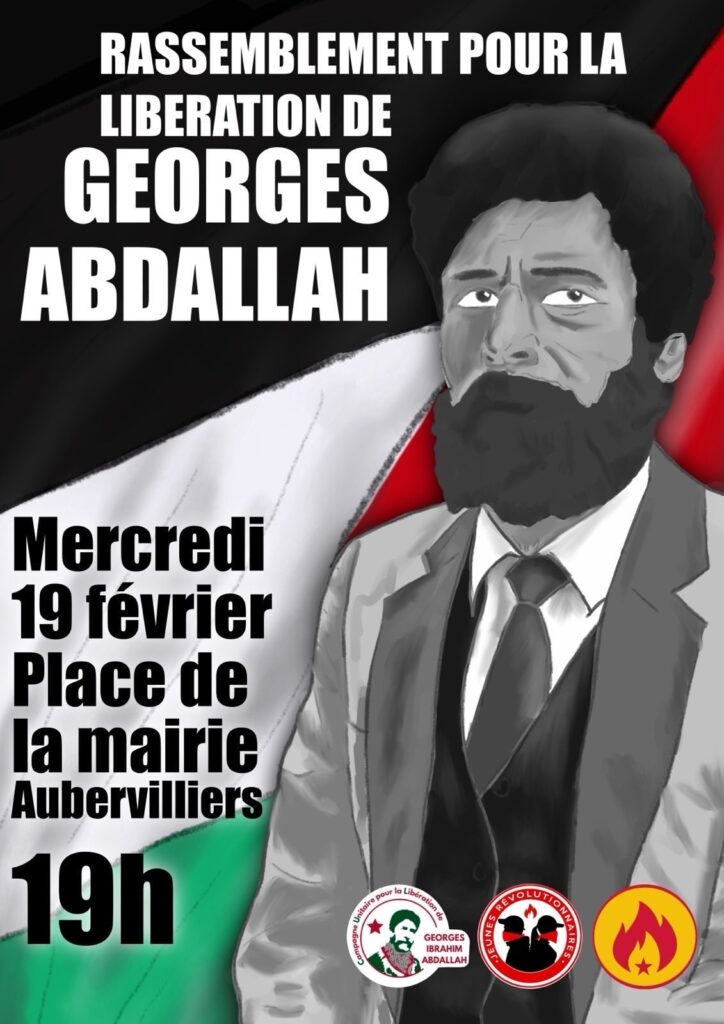
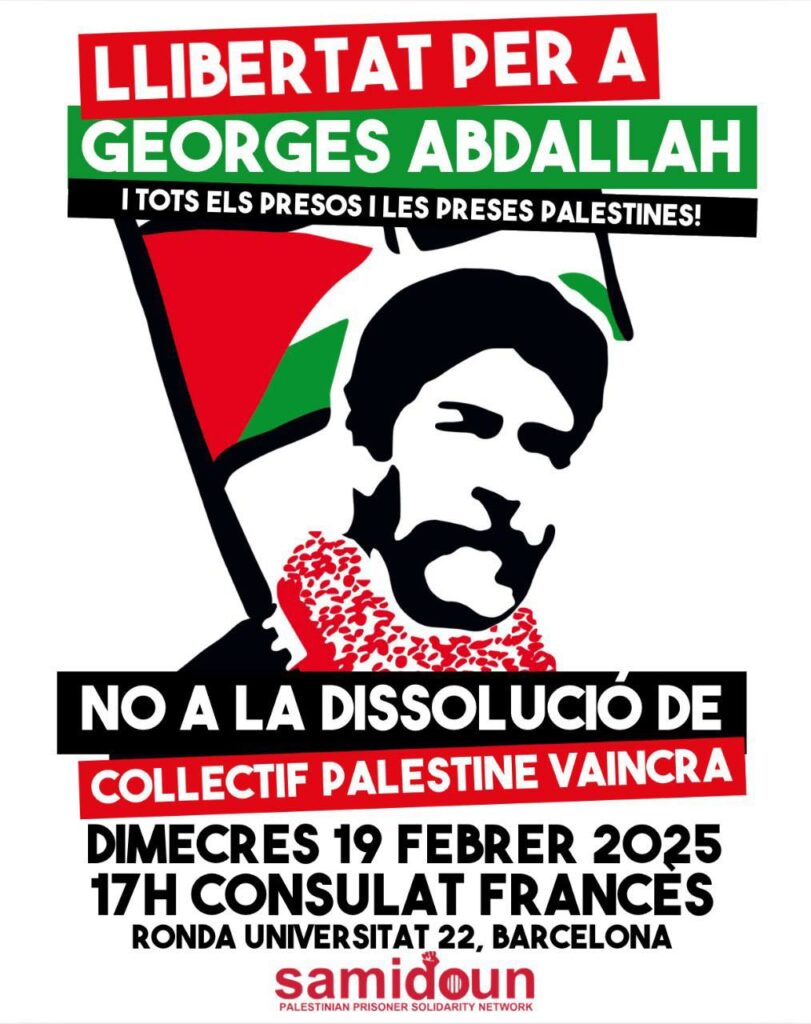
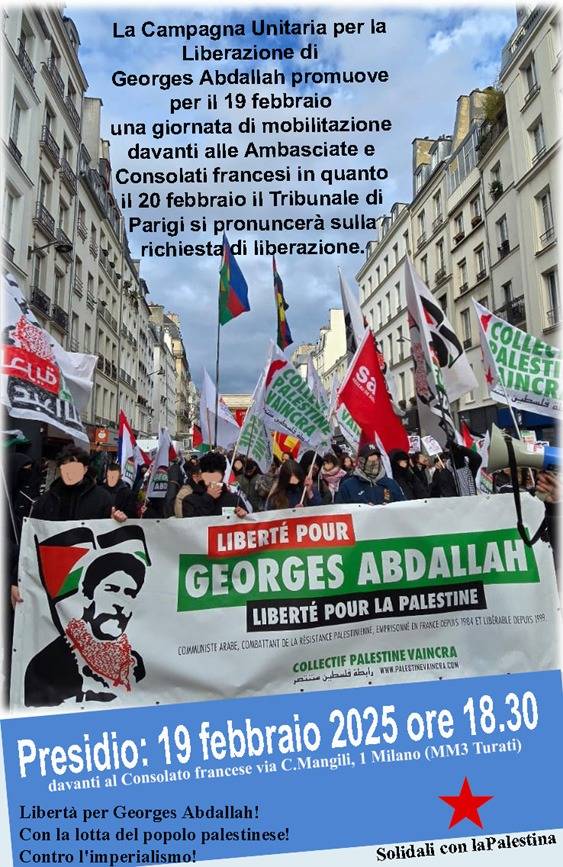
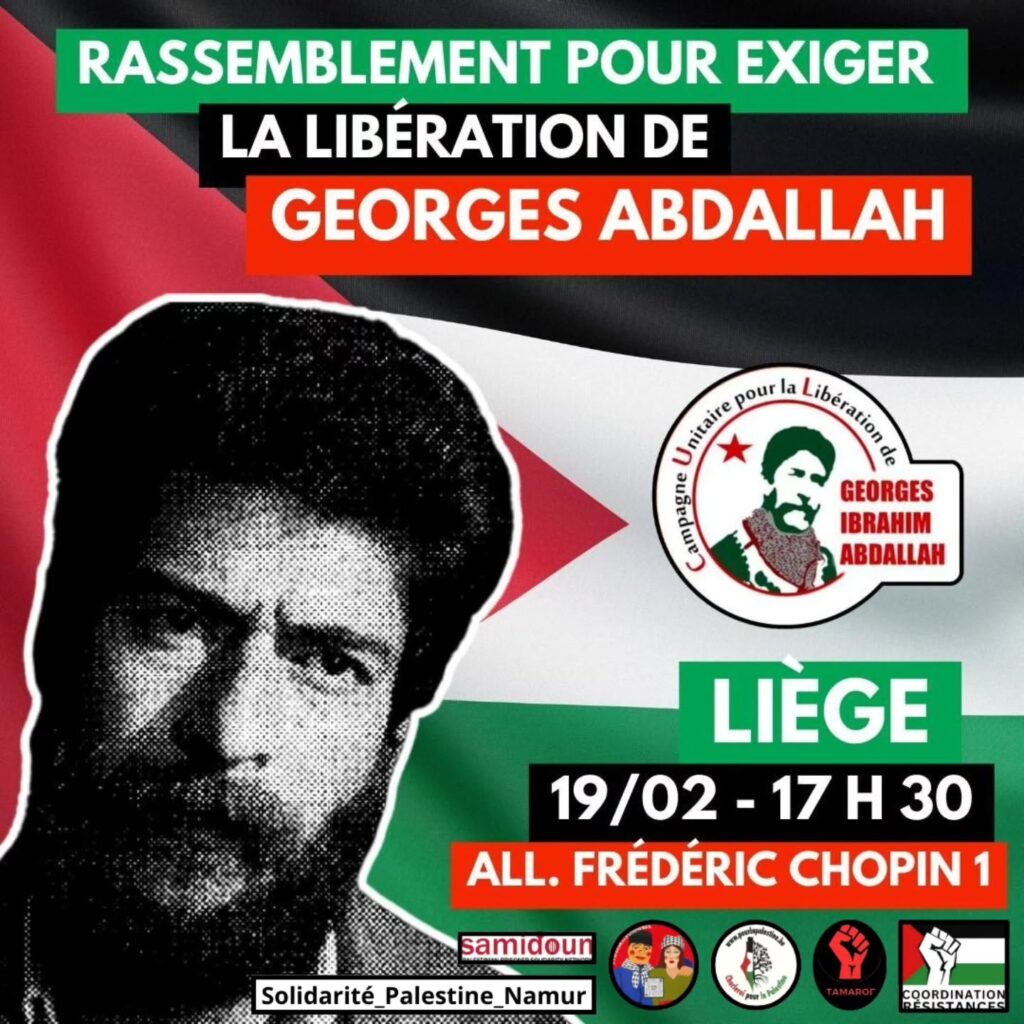
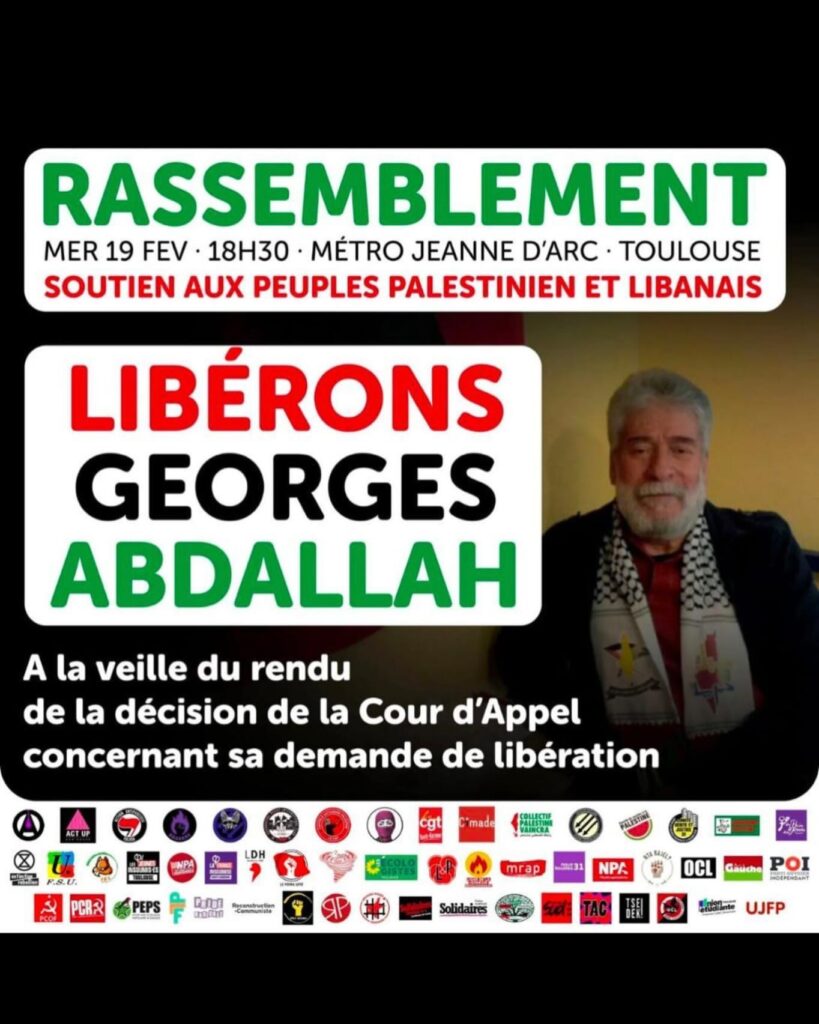 MONTPELLIER:
MONTPELLIER: